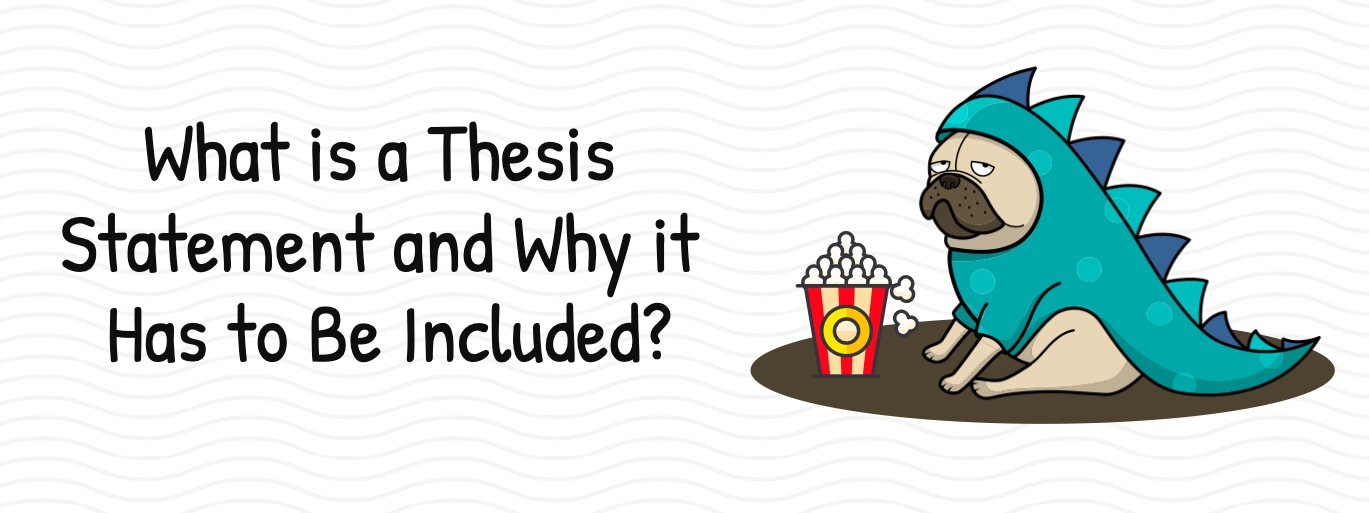When you are in high school, college seems like an entirely wonderful and mysterious place. People talk about how exciting college is, how much you are going to learn, all the amazing people you are going to meet and all the adventures you are going to go on. These same people then talk about how difficult college is.
On this point, they are not wrong and we at Edublogger know that. College is incredibly difficult. It pushes you to the limit, and it requires you to become an exceptional writer in a very short space of time. With this newfound knowledge of writing should come the topic of the thesis statement. Also, read more about dissertation parts.
But, what exactly is a thesis statement?
A thesis statement does not simply regurgitate the subject that is at hand. You will have countless other opportunities to fill up your word count with repetitive pieces of information.
The thesis statement is not the place to do that. This is where you get a chance to tell your reader about the opinion that you have on the subject that you have been presented with. This opinion is not simply one that you have formed for personal reasons.
Instead, it is one that you formed after doing massive amounts of research. It is the opinion that you came to once you understood the subject matter fully.
It is also the opinion that you will be discussing and backing up throughout the piece of writing that is about to follow. While you may have a lot of information to back up this statement, it is not a fact and it can, and probably will be refuted at some point in the future.

Where does it go and how long should it be?
You might want to start your paper off with a bang, but you do not do this with the thesis statement. Instead, you need to put this thesis statement somewhere further into the paper. This will generally be after there has been some introduction.
Once the paper and topic have been introduced sufficiently, then you can slot in your thesis statement at the bottom of the first paragraph.
This statement should be succinct and clear. There should be no ambiguity that is displayed. You should rather aim to summarize your point in one sentence that is both artful and insightful. After reading this statement, readers should be abundantly clear on what they are about to delve into.
How do you create a strong thesis statement?
The only way to write a strong thesis statement is to know the subject matter backward and forwards. You need to be a veritable expert on every bit of information that your paper is going to present. Only once you have all this information can you develop a statement that clearly outlines your focal point on the topic.
Does your statement answer the question that was originally presented?
At the college level, you are not only given a topic, but you are also given a question. A question that you must then research and finally answer. Your answer should then be carefully put down in the thesis statement. The first step in evaluating the strength of this statement is to take a step back and objectively check whether this statement answers the question. If it does not do this, then you might need to head back to the drawing board.
So, what?
You have done your research, you have formed an opinion, and finally, you have developed a thesis statement. The next question you need to ask yourself is, so what? You have stated your opinion but why does it matter? What kind of contribution is it making to the field? Is it valid or are you simply stating something that someone else has said before you?
At college, you cannot only be smart you also need to be original. This will be quite clear in your thesis statement. If you have not stretched your mind on the topic, then you cannot possibly offer an opinion that is new and insightful.
This does not have to be done by leaps and bounds, but you do need to take the topic just a little bit further than how you found it. This is the very nature of academia and learning.
Can someone refute your statement?
Your statement does not need to be airtight. While you need to be well versed in the topic, you cannot possibly know absolutely everything.
Someone is probably going to come along that will be able to refute your statement successfully. This can, however, only be done if your statement is one of an argument and not of facts.
A fact is, by definition, something that cannot be refuted. These same facts do not belong in a thesis statement. If yours is irrefutable, then it may need some changing. You cannot be afraid of being proved wrong. Everyone is wrong at some point.
How does a thesis statement help you?
It is all well and good talking about what this statement can do for academia and your readers, but what can it do for you? How does it help you in your writing process? The answer here is simple. It keeps you focused on. It serves as a reminder of what you are trying to say.
If ever you land up getting a little bit lost or wind up veering off track, then all you need do is head to your statement. That is if your thesis statement is a strong one. If it has not encapsulated your main point, then it can have no way of reminding you of what that point is.
What should your last thought be?
At the very end of the process, there should be three things that you ask yourself. These being who, why and what. These three words should be your guide throughout the writing and researching your piece. While creative license can be taken, these questions should never be far from your mind. Your thesis statement should be the perfect example of how you dealt with these questions.


